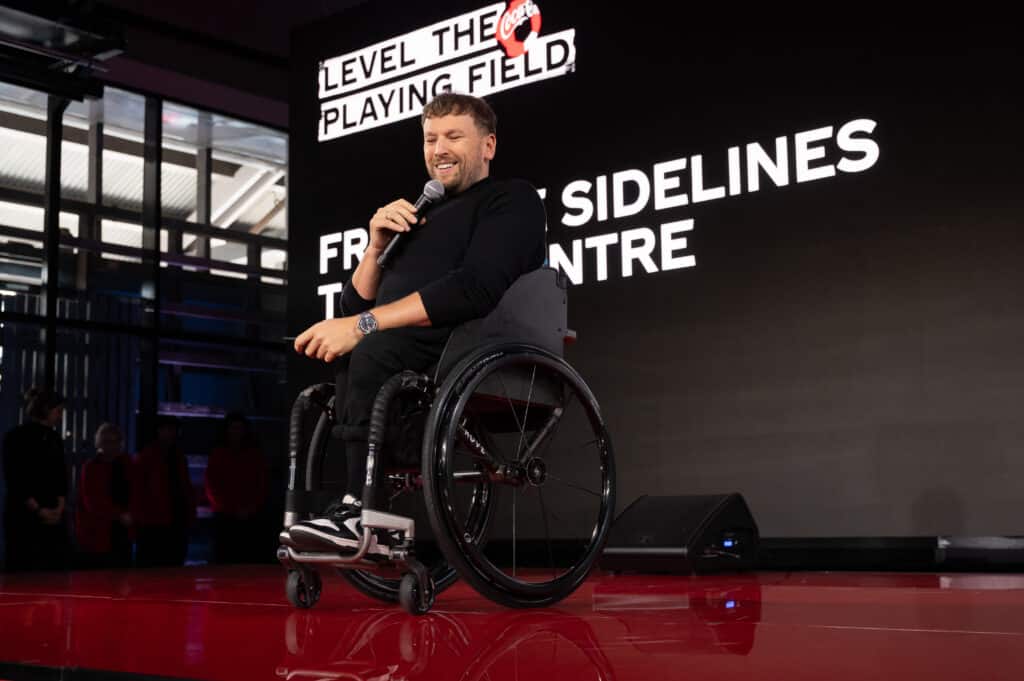For former Sex Discrimination Commissioner Elizabeth Broderick, there are plenty of reasons why businesses should strive for better diversity, equity, and inclusion.
There’s a clear moral case, the ever-expanding business case, and the overall national benefit case. But alongside all of these, there’s the fundamental case of the need to uphold human rights.
At Coca-Cola’s Diversity, Equity, and Inclusion Summit, Level the Playing Field, held in line with the 2023 FIFA Women’s World Cup, Broderick shared the importance of business leaders working to uphold the Universal Declaration of Human Rights.
The declaration states that all of us are all born equal in dignity and right. Effective diversity, equity and inclusion policies are a key way to ensure workplaces are upholding the declaration, she explained.
So what are the key ways organisations can ensure they are equipped to pursue diversity, equity, and inclusion? Below are some suggestions from speakers at the Summit.
DEI solutions must be data driven
Founder and Managing Director at TDC Global, Sarah Liu said that to effectively address and dismantle inequities, businesses must confront challenges by adopting solutions that are data driven.
“Business leaders can cultivate a DEI approach grounded in real evidence by integrating methodologies that establish objectives, assess outcomes, and monitor achievements,” Liu said.
Well-defined benchmarks that help organisations to monitor their progress are critical, as is a clear methodology to achieve the change, Liu suggested.
“Mistakes in strategy implementation are common and acceptable, yet the ability to recognise these missteps, understand their origin, and then adapt the approach is necessary,” she said.
Diversity, equity and inclusion is no longer a “nice-to-have element”, according to Liu, who notes there is a “strong body of evidence that gender and racially diverse teams outperform their peers.”
Unifying our approach to DEI
For Global Head of Diversity, Equity, and Inclusion at Haleon, Dr Zaheer Ahmad, adjusting systems and structures to better include people from diverse backgrounds can make us better leaders and managers.
What’s more, interacting with different perspectives and life experiences in the workplace can make us better humans and colleagues.
“The moral and ethical case for diversity resonates with me more so than the business case,” he told the summit. Dr Ahmad also noted the power that comes from cross-sector collaboration when addressing structural inequalities for underrepresented groups.
“The systemic inequalities can only be tackled if we come together and unify our approach.”
Visibility is key to dismantling unequal systems
As former Australian of the Year and multi-talented para-athlete Dylan Alcott AO pointed out at the summit, creating visibility for underrepresented groups is an essential part of promoting diversity, equity, and inclusion.
One in five people in the world have a disability. For businesses, ensuring people with disabilities are acknowledged, visible, and represented, can help with reaching a larger customer base, and also create a greater employee pool for accessing the best talent.

Alcott told the summit that growing up, he never saw anyone with a disability like him in workplaces, in the media, or in marketing and advertising campaigns. It was detrimental to his self esteem and mental health, and left him not wanting to leave the house as a teenager.
“We need greater representation. We need to change this perception, in businesses, in sport, and everywhere,” he said. Alcott told the audience his purpose in life is to shift the structures that are holding people with disabilities back, and changing perceptions is a key part of that.
“You might think my purpose is to win grand slams, but it wasn’t,” he said.
“It’s to change perceptions so that all people with disabilities can live the lives they deserve to live.”
Women’s Agenda is sharing a number of key insights from Coca-Cola’s Diversity, Equity, and Inclusion Summit held in line with the 2023 FIFA Women’s World Cup, thanks to our partnership with Coca-Cola. You can read Coca-Cola’s Level the Playing Field Report here.

